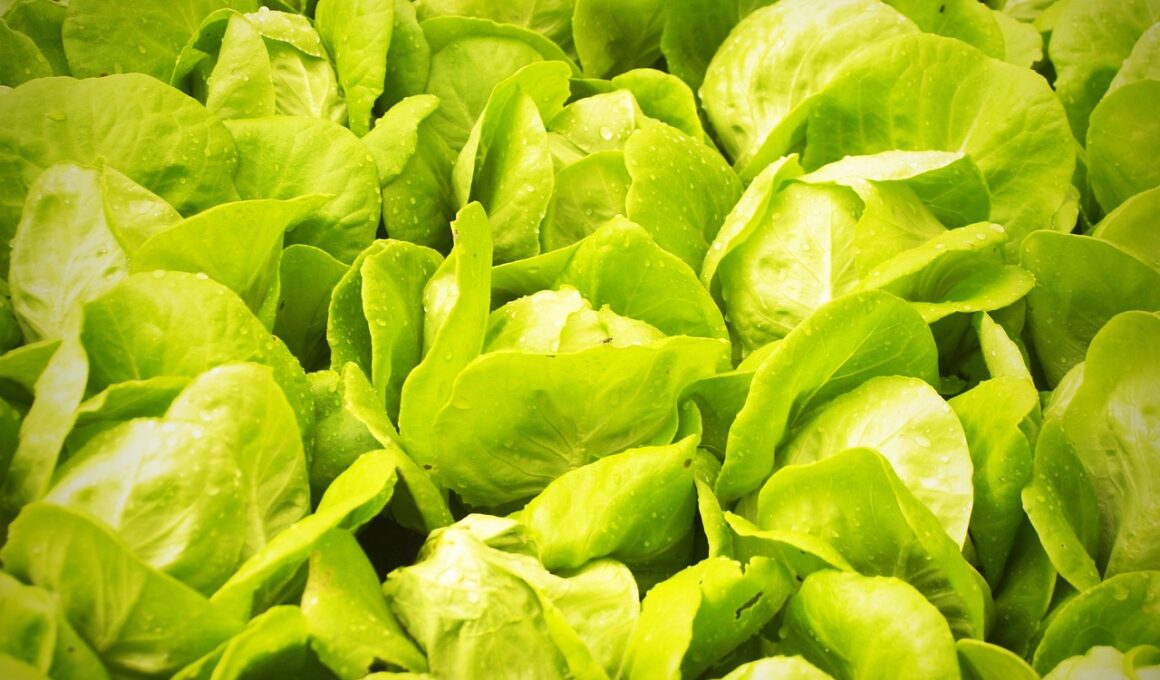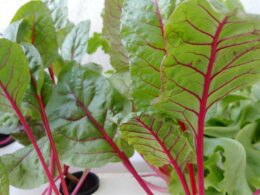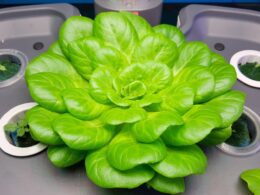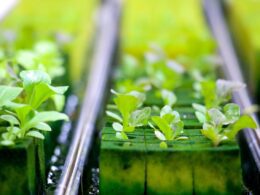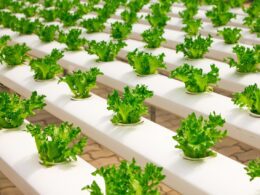Are you new to hydroponics and wondering how often you should change the water in your system? Proper water management is crucial for healthy plant growth in hydroponics, as the water serves as the medium for delivering nutrients to your plants. Neglecting water quality can lead to a buildup of harmful bacteria and algae, which can ultimately harm your plants and undermine your hard work.
To maintain optimal water quality in your hydroponic garden, you need to understand the factors that affect water quality and how to recognize signs that it’s time to change the water. By taking a proactive approach to water management, you can ensure that your plants have the best chance of thriving in a safe and healthy environment.
In this article, we’ll guide you through the process of deciding how often to change the water in your hydroponic system, and share tips for maintaining a healthy garden that yields bountiful harvests.
So, let’s dive in!
Understand the Importance of Water Management in Hydroponics
You need to grasp the significance of managing water in your hydroponic system to ensure optimal growth. Water management is crucial for maintaining a healthy hydroponic system.
You need to be aware of the amount of water your plants are receiving and how often you should change the water. One essential factor in water management is water testing. Testing the water regularly ensures that it’s free from harmful chemicals and pathogens.
You can test the water using a water testing kit, which will give you a reading of the pH level, nutrient balance, and other essential factors. Maintaining the correct pH level and nutrient balance in the water is crucial for healthy plant growth.
Another vital aspect of water management is knowing when to change the water. Changing the water too often or not often enough can harm your plants. As a general rule, you should change the water in your hydroponic system every 2-3 weeks. However, this may vary depending on the type of plants you’re growing and the size of your hydroponic system.
Always monitor the water quality and adjust the frequency of water changes accordingly. In summary, water management is essential for a healthy hydroponic system. Regular water testing and maintaining the correct nutrient balance and pH level is crucial. Knowing when to change the water is also important for optimal growth.
By following these guidelines, you can ensure that your plants receive the best possible environment to thrive in.
Factors to Consider When Deciding How Often to Change Water
When figuring out how often to change the liquid in your hydroponic system, there are several factors to consider. One of the most important is water quality testing. You should regularly test the water to ensure that the pH level and nutrient levels are appropriate. If the water quality is poor, you may need to change the water more frequently to maintain a healthy growing environment for your plants.
Another factor to consider is nutrient solution adjustments. As your plants grow, they will consume nutrients from the water. If the nutrient solution becomes depleted, it can lead to stunted growth or even death for your plants. You may need to change the water more frequently if you notice consistently low nutrient levels. However, if the nutrient levels are consistently high, you may be able to go longer between water changes.
Ultimately, the frequency of water changes in your hydroponic system will depend on various factors, including water quality testing and nutrient solution adjustments. It’s essential to monitor these factors regularly to ensure that your plants are receiving the appropriate amount of nutrients, and the water is within the appropriate pH range. By keeping these factors in mind, you can help ensure that your hydroponic system remains healthy and productive.
Signs That It’s Time to Change the Water
It’s crucial to pay attention to signs indicating that it’s time to change the water in your hydroponic system. One of the main indicators is the water change frequency. Generally, it’s recommended to change the water every two to three weeks.
However, if you notice that the water is becoming cloudy or murky, it’s a sign that it needs to be changed sooner. Another important factor to consider is water quality indicators. These can include pH levels, nutrient levels, and temperature.
If you notice that the pH levels are becoming too acidic or alkaline, it could be a sign that the water needs to be replaced. Similarly, if the nutrient levels are becoming imbalanced or the water temperature is too high or too low, it’s a sign that the water needs to be changed.
Overall, paying attention to these signs is crucial to the success of your hydroponic system. By changing the water regularly and monitoring water quality indicators, you can ensure that your plants are receiving the necessary nutrients and growing in a safe environment. So, make sure to keep an eye out for these signs and change the water as necessary for optimal plant growth.
Tips for Maintaining a Healthy Hydroponic Garden
Maintaining a healthy hydroponic garden requires proper monitoring of nutrient levels, pH balance, and temperature, as well as regular cleaning and disinfecting of your equipment.
One of the most important aspects of hydroponics is maintaining the pH balance of the nutrient solution. The pH level should be checked daily, and adjusted as needed to keep it within the ideal range for your plants.
In addition to pH balance, monitoring the nutrient solution is also crucial. The nutrient solution should be changed every 1-2 weeks, depending on the size of your system and the type of plants you’re growing. It’s important to keep track of how often you change the water, as over time, salts and other minerals can build up in the solution, affecting the health of your plants.
To maintain a healthy hydroponic garden, it’s also important to regularly clean and disinfect your equipment. This includes cleaning the reservoir, pumps, and tubing to remove any algae or other buildup that can harbor harmful bacteria.
By taking these steps to ensure the health and cleanliness of your hydroponic system, you’ll be well on your way to a thriving garden.
Conclusion: Maintaining Optimal Water Quality for Healthy Plant Growth in Hydroponics
Ensuring optimal water quality is essential for healthy plant growth in hydroponics, and regular cleaning and disinfecting of equipment is key to achieving this. It’s important to change the water in your hydroponic system regularly to maintain optimal water quality. How often you change the water depends on several factors, such as the size of your system, the type of plants you’re growing, and the nutrient solution you’re using.
To maintain optimal water quality in your hydroponic system, here are some tips to keep in mind:
- Clean your equipment regularly to prevent the growth of harmful bacteria and algae.
- Use a high-quality water source that’s free from contaminants and pollutants.
- Monitor the pH and nutrient levels of your solution regularly and adjust as needed.
- Use a water quality testing kit to check the levels of dissolved oxygen, pH, and nutrient concentrations.
- Change the water in your hydroponic system frequently to prevent the buildup of harmful substances.
Regular maintenance and testing are crucial to identifying and addressing any potential issues before they become serious problems. With a little bit of effort and attention to detail, you can create a healthy and productive hydroponic garden that provides you with fresh, nutritious produce all year round.
Frequently Asked Questions
Can I reuse the water in my hydroponic system?
If you’re wondering whether you can reuse the water in your hydroponic system, the answer is yes, you can. However, it’s important to monitor the water quality closely.
As you reuse the water, the nutrient levels will change and the pH may fluctuate. Regular testing and adjustment is crucial to maintaining a healthy environment for your plants.
If the water becomes too contaminated or the nutrient levels become depleted, it may be necessary to start fresh with a new batch of water. So, while water reuse can save you time and resources, it’s important to stay vigilant to ensure your plants stay healthy and happy.
How do I test the pH and nutrient levels in my hydroponic water?
Testing the pH and nutrient levels in your hydroponic water is crucial to the health and growth of your plants. To get started, you’ll need a pH meter, a nutrient test kit, and some calibration solution.
When testing pH, make sure to calibrate your meter first and then take multiple readings to ensure accuracy. For nutrient testing, follow the instructions on the kit and be aware of common mistakes like not shaking the sample enough or adding too much or too little of the reagents.
If you notice any issues with your water, such as pH levels being too high or low, or nutrient deficiencies, make adjustments to your nutrient solution accordingly. Effective strategies for nutrient solution adjustments include adding more or less of certain nutrients or changing the ratios altogether.
Troubleshooting may be necessary if you’re still experiencing problems after making adjustments, so be on the lookout for signs of plant stress and continue testing regularly to ensure optimal water quality.
What types of water should I use for my hydroponic system?
When it comes to setting up a hydroponic system, water quality is crucial for the growth and health of your plants. Water filtration and pH adjustment are important considerations for hydroponic water quality.
Using a reliable water filtration system will eliminate any harmful chemicals and contaminants that can negatively impact your plants. Additionally, adjusting the pH of your water is necessary to ensure your plants can properly absorb nutrients.
It’s recommended to use distilled or reverse osmosis water for your hydroponic system, as tap water can contain high levels of minerals that can affect pH levels and nutrient absorption. By taking these steps to ensure the quality of your hydroponic water, you can give your plants the best chance of thriving.
How do I prevent algae growth in my hydroponic system?
Preventing algae growth in your hydroponic system is crucial for maintaining a healthy and thriving set-up. The best practices for preventing algae involve keeping your water clean and well-circulated. You can achieve this by regularly changing your water and ensuring your system is well-maintained.
Using chemical-free solutions such as beneficial bacteria or hydrogen peroxide can also help prevent algae growth and promote healthy root growth and nutrient uptake.
By implementing these practices, you can ensure a safe and successful hydroponic system for your plants to thrive in.
Is it necessary to use a water conditioner in my hydroponic system?
If you’re wondering whether it’s necessary to use a water conditioner in your hydroponic system, there are alternatives to consider. While a water conditioner can help remove impurities and balance pH levels, it’s important to consider the environmental impact of water conditioning in hydroponics.
Some water conditioner alternatives include using reverse osmosis or distilled water, or incorporating natural additives such as vinegar or lemon juice. However, keep in mind that not using a water conditioner may have an impact on plant growth.
It’s important to weigh the pros and cons and choose the best option for your specific hydroponic setup.
Conclusion
So, there you have it – maintaining optimal water quality is crucial for healthy plant growth in hydroponics. By understanding the importance of water management and considering factors such as plant type and system size, you can keep your hydroponic garden thriving.
Remember to use a high-quality water source, monitor pH levels, and regularly clean your system to prevent the buildup of harmful bacteria and mineral deposits. With these tips in mind, you’ll be well on your way to a successful hydroponic gardening experience.
Happy growing!





